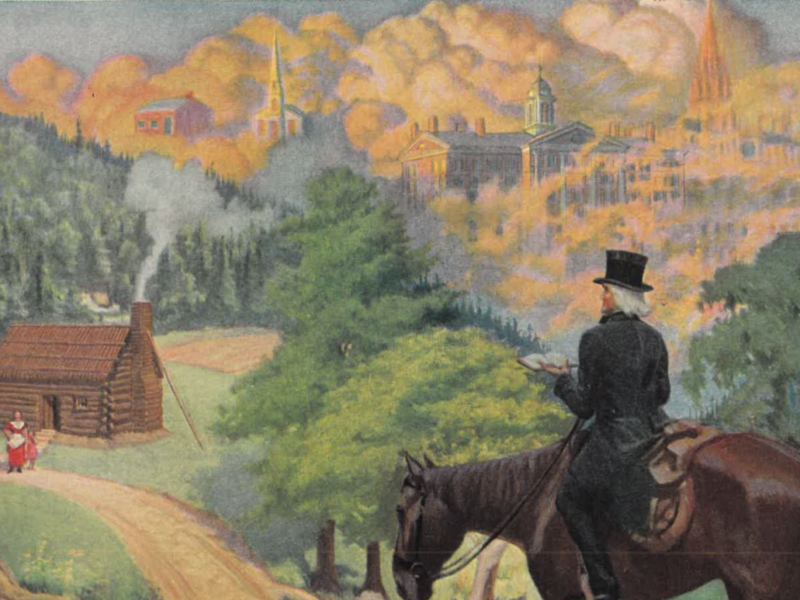- Come Thou Long Expected Jesus – The First Sunday in Advent
- Lo! He Comes with Clouds Descending – Second Sunday in Advent
- On Jordan’s Bank the Baptist Cries – Third Sunday in Advent
- O Come, O Come, Emmanuel – The Fourth Sunday in Advent
- What Child Is This? – Christmas Day
- Angels from the Realms of Glory – The Sunday after Christmas Day
- Joy & Wonders – The Feasts of Circumcision & Epiphany
- Nonconforming, Ever Transforming – The First Sunday after Epiphany
- Songs of Thankfulness and Praise – Second Sunday after Epiphany
- Hail to the Lord’s Anointed – The Third Sunday after Epiphany
- The Embodied Temple: Candlemas
- Kept by Christ – The Epiphany of True Religion – Fifth Sunday After the Epiphany
- Exiles on the Run – Septuagesima Sunday
- Firm Foundations – Sexagesima
- Given to Shriven: Quinquagesima
- Life, Love, & Lent: Ash Wednesday
- Forty Days, Forty Nights – First Sunday in Lent
- Just As I Am – The Second Sunday in Lent
- “Lightning” the Way – The Third Sunday of Lent
- The Comfort of Thy Grace – The Fourth Sunday in Lent
- O Love, How Deep – The Fifth Sunday in Lent
- When I Survey – The Sunday Next before Easter
- O Sacred Head, Embodied Sacrifice – Good Friday
- Questions – Easter Even (Holy Saturday)
- Hymn of Joy – Easter Day
- No Quarter – The First Sunday after Easter
- Shepherd of the Sheep – The Second Sunday after Easter
- Strangers and Pilgrims – The Third Sunday after Easter
- Every Perfect Gift – The Fourth Sunday after Easter
- Walk the Fields – Rogation Sunday
- Hail to the King – Ascension Day
- Leave Us Not Comfortless – The Sunday after Ascension Day
- Lighten Our Darkness – Whitsunday
- Keep Us Steadfast in This Faith – Trinity Sunday
- Nothing Ordinary About It – The First Sunday after Trinity
- The Confession – St. Peter’s Day
- The Joy Over One – The Third Sunday after Trinity
- Turn and Be Turned
- Worn, Not Out
- Deadbeat to Sin for Death is Beaten
- Nourishment – The Seventh Sunday After Trinity
- Profitable for Us
- Enabled: The Ninth Sunday After Trinity Sunday
- To Love That Word: St. Bartholomew’s Day
- Partakers of thy Heavenly Treasure – The Eleventh Sunday after Trinity
- More Ready to Hear Than We Are to Pray – The Twelfth Sunday after Trinity
- Laudable Service
- The Taxman
- Seek Ye First
- God Hath Visited His People
- Prevent Us & Follow Us
- Withstand
- Direct and Rule Our Hearts
- Knit Together
- Not as Fools
- Breaking Winter’s Silence
- Devoutly Given
- Jordan’s Shores
Alleluia, song of gladness,
Voice of joy that cannot die;
Alleluia is the anthem
Ever dear to choirs on high;
In the house of God abiding
Thus they sing eternally.
“Life is complicated,” the saying goes, yet our faith is simple. God holds us, Christ keeps us, and the Spirit fills us for all is grace, sweet grace. Our faith is one of praise – “Alleluia” we sing this day as we see Epiphanytide give weight to Gesimatide because we praise the One who purchased our salvation and grants us grace as our eyes see the oncoming pre-Lenten season. Our voices shout a joyful noise, knowing that suffering is coming and suffering we should expect for if our master suffered then so shall we.
But we do not despair, instead, we rejoice in our testing and cling nearer to Christ as a complicated world is being made simple by the profound truth that Christ has died, Christ is risen, Christ will come again. Jerusalem is in the distance and Mt. Zion draws nearer, yet we still find ourselves in this life called to sing the songs of exile by the waters of Babylon where we weep. Babylon loves to rub salt in the wounds of this life. Cancer is being borne by many a family member, unemployment robs us of vocation, or the hidden battle of mental darkness troubles so many within the Church. And yet, we cry aloud all the more, “ALLELUIA,” for our Conqueror draws nigh. Calvary is in sight and so is the empty tomb. We only must journey from one last Epiphany into pre-Lent and the Lenten fast, before we rejoice on Easter morn.
This season comes to a close but it prepares us for the liturgical sojourn that is our life: a pilgrimage from birth to death to resurrection reflected in the Gesima’s, Ash Wednesday, Lent, Holy Week, and Easter morn. As it closes in, it comes at a time in which the Gospel lesson may seem to be a curious choice. After all, the Parable of the Weeds (Matthew 13:24b-30) is not an epiphany; has the ancient Western lectionary erred in the Gospel selection? Far from it, our Lord’s parable is a call to us to remain steadfast and to stand fast in His eternal Epiphany into our hearts and minds as our Lord and our God. We are exposed to the world and are open prey to our Enemy who wishes to devour us and debilitate us from being effective in this life. Yet we praise Jesus all the more as He manifests Himself and is born anew in our hearts, our minds, our souls, and our acts of mercy to those whom the Enemy wrongfully lays claim upon.
Alleluia thou resoundest,
True Jerusalem and free;
Alleluia, joyful mother,
All thy children sing with thee;
But by Babylon’s sad waters
Mourning exiles now are we.
Christians are weak in the eyes of man, yet made strong by the Spirit of the God who epiphanies Himself to us. Christ still comes to us, His people. He continually epiphanies Himself through the preached Word and His sacraments received. Therefore, in our weakness, we cling to Christ and His strength. Though our Enemy be on the prowl, we do not cower in fear but cling to our King, the same King who bound the strong man and plundered the devil’s domain on Holy Saturday. The same King of Kings who plunders the devil’s domain by advancing the Church against Babylon’s gates. Therefore, our prayer this last week of Epiphany seeks the comfort, strength, and hand of Christ upon our hearts and shoulders “to keep thy church and household continually in thy true religion.” (Collect of the Day).
Yes, O Lord, we pray that You keep us in your true religion because we are “prone to wander, Lord I feel it” as the hymn goes. In this evil day and age, the Church can be tempted to fall for false religion and follow false shepherds. As one African Anglican bishop has put it, the problem with Western Christianity is that we do not know how to suffer. Our Lord knows and His Church has known suffering from its infancy to today. But how hollow our faith rings in the West when we are challenged by a simple test. We cry out that we suffer when truly we are merely inconvenienced. Then, out of a perverted desire to self-justify, many in the Church are willing to change the faith – not that the truth can ever be changed – and replace it with a Christianity without suffering – a name it and claim it faith that is faithless. Or a so-called faith that is anchored upon fruitfulness measured by metrics and acceptance by the world, all of which shall rot in our mouths unlike the fruit of the Spirit which shall not be measured until the Book of Life is open. Worst still, is the desire to re-brand, whitewash, or update the Church’s teachings in order to be “relevant.”
The call of the Church is not relevance, popularity, nor acceptance. The call of the Church is to be a resounding voice echoing forth from the Body of Jesus that our transgressions condemning us to eternal death have been nailed to the cross. The call of the Church is to bear the marks of Jesus: for as the refrain goes in “What Child is This?”: Nails, spear shall pierce Him through, the cross be borne for me, for you. Our body, the Church, is born to bear the suffering of Christ so sinners are drawn into a kingdom not made by man. No flashy lights, no zeitgeist of relevancy, nothing but the blood of Jesus is what we have to offer and it is all that we should be giving to this world. The Church leads by stumbling as a broken body picked up and healed by the Good Samaritan who rescues us. We point to the one who nursed us to health and paid for all our inconvenience to the tavern where we were left to be healed and recover. In other words, we point fellow broken sinners to Christ and pray this day as one of “those who do lean only upon the hope of thy heavenly grace may evermore be defended by thy mighty power, through Jesus Christ our Lord. Amen.“
Alleluia we deserve not
Here to chant forevermore;
Alleluia our transgressions
Make us for a while give o’er;
For the holy time is coming
Bidding us our sins deplore.
Therefore, we encounter Christ in the Gospel on the Fifth Sunday after the Epiphany, by meeting Him at His Advent. The Parable of the of the Weeds is a warning as we transition into the mild sufferings of Lent. It is a warning to suffer in this life with Christ rather than suffering in the next without Him. It is a warning to remain steadfast in “true religion” and “lean only upon the hope of thy heavenly grace.” This Gospel lesson reminds us that by leaning upon Christ alone, then we “may evermore be defended by thy mighty power” against all the assaults of the Enemy. Though the Enemy sows tares and weeds in our path, we must keep attuned to the Gardener who planted us as He planted Eden. For He will soon harvest us for Eden and pluck us away from exile. Therefore, let us bear fruit in keeping with the Holy Spirit He has planted deep within us, “For the holy time is coming, Bidding us our sins deplore.”
May we truly deplore the tares and weeds of our sins and pluck them out, pull them up, and cast them into the fire today so that we are preserved body and soul in the age to come. Let us cultivate with our Master, the Gardener, His virtue and virtuous living so we may be found faithful on the last day. Like a faithful seed planted in the soil, may we put on the life-giving soil around us and put on the nourishing rains of His grace and Spirit, so that we may rise up out of the ground as a new creation, like the New Adam.
“Put on therefore, as the elect of God, holy and beloved, bowels of mercies, kindness, humbleness of mind, meekness, longsuffering; forbearing one another, and forgiving one another, if any man have a quarrel against any: even as Christ forgave you, so also do ye.” (Epistle Lesson, Colossians 3:12-13, KJV). St. Paul encourages us to “put on” the very Spirit of Christ’s love for one another. Paul reminds us we have been made “holy” because we are “beloved” in Christ Jesus. St. Paul further stresses “And above all these things put on charity, which is the bond of perfectness.” (Colossians 3:14, KJV). Paul echoes his word to the Corinthians that “For now we see through a glass, darkly; but then face to face: now I know in part; but then shall I know even as also I am known. And now abideth faith, hope, charity, these three; but the greatest of these is charity.” (1 Corinthians 13:12-13, KJV). The greatest and chief virtue, love or charity, is poured out by the suffering Christ upon the Cross and is to be put on by every Christian as we suffer in this present world.
It is foolishness and folly to the Gentile mind of this world, but it is through our present sufferings that Christ is epiphanying Himself not only to us but through us to others. What Satan means to afflict and weaken a believer is used by Jesus to strengthen the faith of believers and grant faith to unbelievers alike. While Christ bleeds from His crown of thorns, nailed hands, and pierced feet, His mercy and love are made manifest to us for our salvation. Through His suffering, we are made at peace with God, and the path is opened for His peace to dwell in us and we in Him. “And let the peace of God rule in your hearts, to the which also ye are called in one body; and be ye thankful. Let the word of Christ dwell in you richly in all wisdom; teaching and admonishing one another in psalms and hymns and spiritual songs, singing with grace in your hearts to the Lord.” (Colossians 3:15-16, KJV).
Lord, may we suffer and suffer well for Your Holy Name. Keep us truly, O gracious Father, in your true religion by reminding us to only lean upon the bosom of Jesus, the throne of Your heavenly grace. Turn our hearts back to you as we wander the wilderness of this life in exile. Help us to be your faithful servants crossing the Jordan to overtake the Enemy’s grip on the sheep of your hand. Release their bonds, and our bonds, their chains, and our chains by your mighty outstretched arm. During our traveling and travails in this world, whatsoever we “do in word or deed, do all in the name of the Lord Jesus, giving thanks to God and the Father by him.” Amen. (Colossians 3:17, KJV).
Therefore in our hymns we pray Thee,
Grant us, blessèd Trinity,
At the last to keep Thine Easter
In our home beyond the sky;
There to Thee forever singing
Alleluia joyfully.




